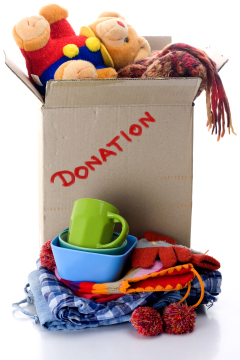Something I wrote up but stuck over on its own blog - too lazy to
redirect.
What not to say to parents of kids on the
spectrum
(or any special need, really...)
Every now and then another adult says something to me about my
kids, that requires me to take a moment and consider what that person really
means. I try and remember to consider the intention behind what's being said,
because sometimes the words hurt, even if the intention is to be kind or learn
something. For those of you out there that have developmentally average kids
(or no kids), here's a few things not to say to parents of kids on the
spectrum, or with any special need, really.
I do not speak for all parents and caregivers of kids with
special needs, but these are some pretty universal guidelines.
1. "Wow, you're an amazing mom. I'm not
sure I could do it!"
This is one of those back handed complements and I have mixed
feelings about it. The first part is kind thing to say to any mom- being a
parent is hard regardless of your child's development. When I get this
the most often though, is after mentioning I have a special needs kid. I often
get this from people who don't know me very well - not well enough that
I've had a venting moment with them. It makes the assumption that parenting my
child, because of his disability, is exceptionally hard. That might actually be
true, but if I haven't vented to you about it, you really have no idea if it's
any harder than parenting a child of average development. The last part is what
stings- "I don't think I could do it". It basically says "your
kid is so overwhelming, that only very special people could manage to raise
him". You don't know that, for starters, and parents all over the world
are often surprised to find themselves raising a child with special needs. And
they rally, balls to the wall, learning how to manage schedules,
educate, and advocate. It's done out of love for a child they've birthed or
fostered or adopted. I believe every parent loves their child enough to want to
do this. Some may not be able to due to barriers such as addiction,
physical or mental health issues, of life circumstances, but know that any
parent that can, will. You could do it. You may not want to, but you
probably could.
2. "Are you going to have more
kids?"
Not a problem for a casual conversation, but if you're asking in
the context of "are you having more kids because yours is
broken/disabled/hard", then it's a hurtful thing to say. I had a close
friend tell me I shouldn't have more because of my Autistic kid, and
didn't I know that "the risk was higher of having another kid on the
spectrum", and she said "I couldn't do it". I can't tell you how
hurtful this was- I cried the entire car trip home. This person knows my son -
how amazing he is, how happy and bright and loving. How can you say I shouldn't
bring more people like him into the world? Does she dislike my kid? Does she
dislike kids on the spectrum? Does she think I'm a terrible parent and am doing
a terrible job with the kids I have? Once I stopped crying and my anger and
hurt subsided enough to think about what she was really asking me, it was
probably closer to "You've told me this is hard. Are you worried about
it getting harder?", and maybe even "I care about you, and I'm
worried about your life getting harder".
If you have a friend that trusts you enough to vent about the hard times, they
don't want you to use it against them later. They need you to understand that
it's a way of developing a support system- just like every parent
of a developmentally average child craves. I would never tell you that you
shouldn't have another child because your developmentally average child has
days that make it feel exceptionally hard to be his/her parent. Think about how
upset you would be if someone said to you "You shouldn't have another
baby- what if they turn out like your son/daughter? That would be awful".
We might be able to laugh about it for kids that we know will grow out of tough
phases, but what if it was a permanent feature of your child? It's a much
different feeling.
You can talk with your friends about their special needs kids, but
don't assume that they should or should not raise another child that might have
special needs. Their repose might be "I'm done having kids" or
"My plate is full enough as it is", but let them be the one to tell
you that they're done, for whatever reason. Don't assume.
3. "I would never drug my child!"
Here's the thing, you might. I'll give you the benefit of the doubt and assume
what you really mean is "I'm really worried about the effects of
medication on my child, and would avoid something I believe is dangerous at all
costs". You know what? I would too! When you make this comment, you're
telling that parent that you believe they're making the wrong decision. It's a
painfully ignorant thing to say - it assumes that I'm giving my child something
unsafe- that I didn't do the research. That I'm negligent. That his
doctors are wrong. That I would rather drug my kid than parent effectively.
That you know more than I do about these medications, about my child's
struggles and needs, and about the best treatment options.
These medications are not magic pills. They don't cure anything, and they can
have side effects, but just like any medication, as his parents, we've assessed
"risk vs. benefit". We've been through extensive testing. We've tried
more natural approaches. We've done research. We've read books. We've tried
exercise and sports. We've tried no TV for year. We've adjusted diets. We've adjusted
our parenting. We've tried supplements. We've seen many kinds of doctors (and not
doctors). It's not a decision made out of laziness, and you know what? Meds,
sometimes, make a world of difference. For our kid it is the difference of our
kid being in a classroom of his peer group (called "least restrictive
placement"), vs. being a classroom where no one is his peer. It's
the difference between a kid with an IQ in the 140s, who also has very little
impulse control and zero social skills, in an environment where he cannot learn
developmentally average social skills. For us it's the difference
between 5+ suspensions a year and phone calls from angry parents, vs. making
friends and being able to participate in a classroom discussion. It is
literally the difference between him riding the school bus and chatting with
his friends, vs. crawling under the seat with his fingers in his ears, crying. It
the difference of being able to come with me to do groceries. Go to a friend's
house. Develop healthy relationships, and allow him to learn how to function in
every day society. The trade off? He's lost his appetite. We have to
remind him to eat. That's it, for us. Every child is
different, but understanding that, you can see why every treatment plan is
different. What works for one child - be it meds, diet, alternative medicine,
etc, might not help another. Sometimes meds are over prescribed, under
prescribed, or not used at all, but please don't assume I'm not on top of it
when it comes to my own child.
"But it's speed for kids!"
No, it's not. Not for these kids. Do some research yourself, and I don't mean
reading articles written by like-minded people. I mean actual research. Ask
an actual doctor what the risks are and how they interact with the brain
chemistry of the kids who take these drugs before saying things like this. It's
not the same reaction that neurotypical kids have. No parent who "drugs
their child" is going to hear this and say "Oh you're right! I
agree with you! No more meds for us!"- because they know that it isn't
"speed", because they've educated themselves, and made thoughtful and
educated decisions.
I've heard the argument that it can lead to drug use later in life. There is a)
no evidence of that (there have been studies) b) can you imagine a
teenager with zero impulse control around a peer group doing recreational drugs
or drinking? Consider your "never ever" stance no meds when your kid
is allowed to drive a car or be out in the world alone- when it's more than
just sitting still in class.
Parents who medicate their children are not
lazy, or negligent, or uneducated. We know the risks, we understand how the
meds work, and we work with doctors to assess risk vs. benefit. Don't assume
this was easy decision, and don't assume it was made lightly.
4. "Have you tried [insert treatment/supplement/magic]? I knew someone
whose kid tried xyz and they got better."
Here's something that parent's with developmentally average kids have a hard
time understanding: I don't think my kid is broken. I don't
think he needs to be fixed. He might need supports in place- treatments that
teach him how to function in the world like social skills classes, IEPs, speech
therapy, OT work, etc. , He might benefit from medication that helps reel in
impulse control or calm sensory sensitivities so that he can function in the
world like neurotypical kids. He has access to whatever we can offer to help
make his world better, but it's not the same as "curing him". I'm not
trying to make him different - I'm trying to give him tools to be as happy as
he can be.
Know that one of the greatest challenges we face as parents of exceptional kids, is neutotypical adults. It's adults not teaching their kids that everyone is different, and that different doesn't equal "bad". It's the assumption that my child should be changed. It's a lack of understanding, empathy, and support that all parents and their children need, regardless of ability. Don't assuming parenting my child is awful, and on the really tough days, listen without judgement. Ask me questions and be open to an answer that might not be what you were expecting.




















